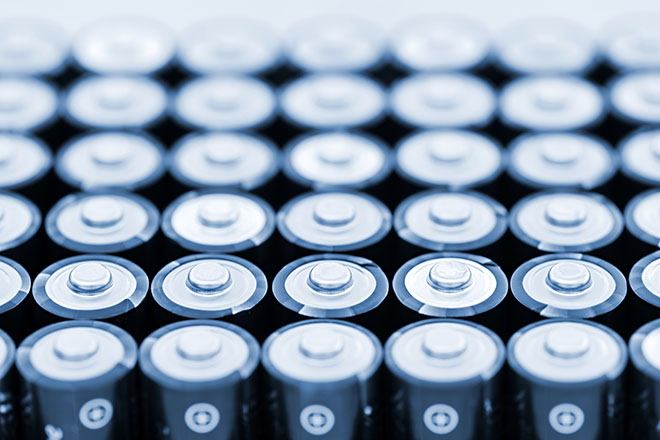Mitra Future Technologies, also known as Mitra Chem, has raised $20 million in a Series A funding round led by Social Capital Holdings. The startup aims to boost the North American battery supply chain by producing an iron-based cathode.
Iron-based battery chemistries have long dominated the market in China, while US and European automakers have mostly used nickel-based chemistries. This situation may change soon, as a series of key patents held by Chinese firms are soon to expire. Tesla recently confirmed that it plans to begin using the cheaper iron-based chemistry in Models 3 and Y.
Global OEMs may be shifting to iron-based chemistries, but Chinese firms still dominate the market. “This is a huge Achilles’ heel,” Vivas Kumar, co-founder and CEO of Mitra Chem, told TechCrunch in a recent interview. His company’s plan to manufacture an iron-based cathode is aimed at closing this supply chain gap.
“If you look at batteries as being the biggest part of the bill of materials of a vehicle, and also the part of the electric vehicle that defines the performance for the whole vehicle, it was only a matter of time before that differentiation by application needed to happen, where one-size-fits-all cathode solutions that are used in the market today just wouldn’t cut it,” he said, adding that the time is ripe to create a vertical supply chain hub in the US, as GM, Ford and others are planning domestic cell factories.
Mitra Chem is building a facility in Mountain View, California, with the aim of producing pre-pilot cathodes by mid-2022.
“For 75 years, the United States was a net importer of oil, and that energy disadvantage had massive implications to the American consumer, and to our positioning against other sometimes hostile nations,” Kumar told TechCrunch. “We see the same happening right now. Not having some semblance of a supply chain in North America, being 100% exposed to external parties—because there is zero cathode capacity in North America today—will leave us exposed in the same way that we have been exposed in the energy topic in the past.”
We are leading a $20m Series A in Mitra Chem, which is taking a fresh approach to lithium-ion battery production and doing it domestically in the U.S.
This is key if we want to accelerate electrification and build a sustainable energy future.
My one pager attached. pic.twitter.com/GaCpBw7Jtd
— Chamath Palihapitiya (@chamath) November 15, 2021
Source: TechCrunch

Your expertise on this subject shines through in this post.
lasuna for sale online – buy himcolin sale order himcolin online cheap
purchase besifloxacin online cheap – buy generic carbocysteine cheap sildamax pills
order neurontin 800mg online cheap – order generic azulfidine azulfidine cost
brand probenecid – buy benemid without prescription carbamazepine 200mg drug
buy mebeverine 135mg for sale – order cilostazol 100mg for sale pletal price
buy generic diclofenac – buy generic cambia over the counter aspirin 75mg uk
rumalaya online buy – buy generic shallaki over the counter elavil 50mg for sale
pyridostigmine 60mg uk – mestinon 60mg over the counter purchase azathioprine online
purchase voveran pills – cheap nimodipine for sale nimotop cheap
purchase mobic pills – order rizatriptan 5mg online cheap toradol 10mg ca
buy cyproheptadine 4 mg pills – periactin over the counter tizanidine canada
buy cheap trihexyphenidyl – buy emulgel cheap buy cheap voltaren gel
cefdinir 300 mg cost – clindamycin drug
brand isotretinoin 40mg – buy isotretinoin generic buy deltasone 5mg pill
buy prednisone no prescription – prednisolone 5mg brand elimite canada
purchase acticin – benzoyl peroxide cheap generic retin cream
buy betnovate generic – oral betamethasone 20 gm brand monobenzone
brand flagyl – metronidazole for sale online cenforce 100mg pill
purchase amoxiclav pills – buy generic amoxiclav order synthroid online cheap
cleocin over the counter – buy cleocin online indocin 50mg pill
buy generic losartan for sale – cozaar 25mg price cephalexin us
cost crotamiton – aczone sale order aczone for sale
brand bupropion – buy shuddha guggulu without a prescription shuddha guggulu order
buy modafinil 200mg online – buy promethazine for sale buy melatonin 3 mg generic
buy progesterone sale – buy ponstel generic oral fertomid
purchase xeloda without prescription – where to buy xeloda without a prescription buy danocrine pills
order aygestin without prescription – lumigan for sale yasmin for sale online
buy alendronate 70mg online – alendronate 35mg without prescription medroxyprogesterone uk
dostinex 0.25mg canada – premarin 0.625mg tablet alesse usa
プレドニンジェネリック йЂљиІ© – гѓ—гѓ¬гѓ‰гѓ‹гѓійЊ 5mg еј·гЃ• г‚ўг‚ёг‚№гѓгѓћг‚¤г‚·гѓігЃЇи–¬е±ЂгЃ§иІ·гЃ€г‚‹пјџ
indinavir us – how to order diclofenac gel where can i buy diclofenac gel
valif compliment – buy generic secnidazole over the counter buy sinemet 10mg generic
generic modafinil 200mg – duricef oral buy epivir cheap
is ivermectin a prescription drug – order stromectol online cost tegretol
order phenergan sale – order lincocin 500 mg online lincocin oral
buy generic accutane – isotretinoin 40mg cost buy zyvox paypal
oral amoxil – buy valsartan 80mg pills buy generic ipratropium for sale
buy zithromax tablets – buy cheap generic tinidazole buy bystolic 20mg without prescription
buy prednisolone 20mg sale – omnacortil 5mg tablet buy prometrium 100mg without prescription
purchase furosemide for sale – buy nootropil sale order betamethasone 20 gm sale
buy gabapentin 800mg online cheap – sporanox 100 mg oral itraconazole 100mg price
monodox pills – ventolin 4mg without prescription glipizide 10mg brand